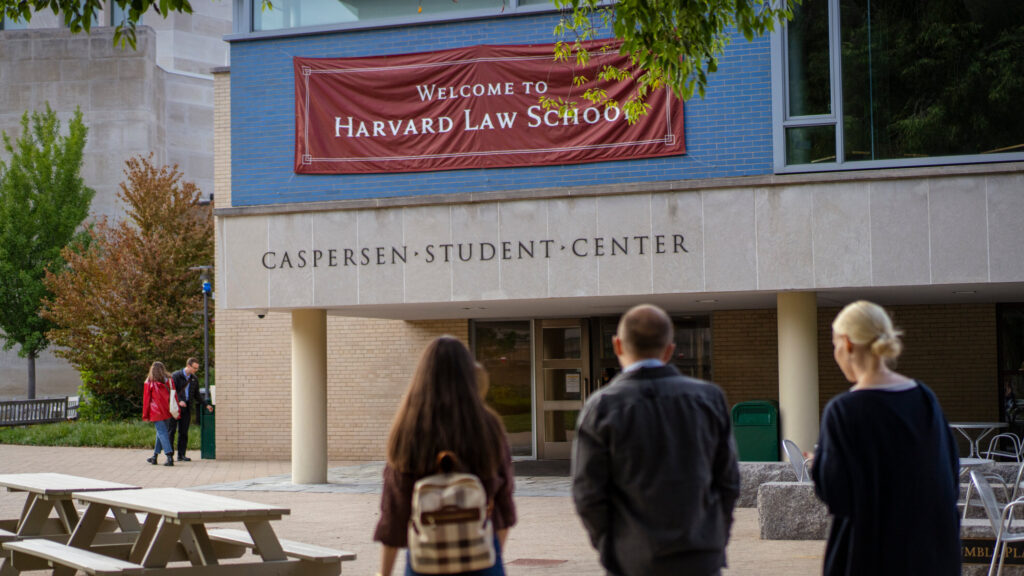
After Boycott from Law Schools, U.S. News & World Report Changes Ranking System
Under stress amid a boycott through pinnacle regulation faculties, U.S. News & World Report informed regulation college deans on Monday that it’ll make numerous modifications withinside the subsequent version of its influential scores.
In a letter to American regulation college deans posted on its site, U.S. News stated its subsequent listing might deliver extra credit score to faculties whose graduates cross directly to pursue superior degrees, or college-funded fellowships to paintings in public-provider jobs that pay decrease wages. The mag, which has been publishing the scores for decades, is responding to complaint that its ratings overvalue high-paying private-zone jobs.
The 2023-24 ratings, scheduled to be posted this spring, can even depend much less on surveys of faculties’ reputations submitted through academics, attorneys and judges, the mag stated.
A spokeswoman for U.S. News stated the listing will not don’t forget signs of scholar debt, or the faculties’ spending in line with scholar. Critics have stated the mag’s preceding metric for measuring scholar debt recommended faculties to prefer rich college students over people with monetary need, and that its use of spending in line with scholar figures favors wealthier establishments.
“We understand that felony schooling is neither monolithic nor static and that the ratings, through turning into so extensively accepted, won’t seize the man or woman nuances of every college,” Robert Morse, the leader facts strategist at U.S. News, and Stephanie Salmon, senior vp of facts and data strategy, wrote withinside the letter.
U.S. News will hold to rank faculties which have declined to participate, the usage of publicly to be had facts. But it’ll post extra distinctive profiles of faculties that respond, a probable incentive for decrease-ranked establishments keen to draw the eye of college students.
The U.S. News listing, posted yearly in view that 1987, is as influential as it’s miles sclerotic. Roughly the equal 14 regulation faculties have held the pinnacle slots for 30 years, alternating best barely and prompting headlines once they do. Its standards for the ratings are watched nearly as closely.
In latest months, however, a majority of these pinnacle 14 faculties have introduced that they’ll not participate. Among the ones losing out are Yale, which has crowned the listing for decades, and Harvard, Stanford, Northwestern, Georgetown, Columbia and Berkeley.
Yale Law’s dean, Heather K. Gerken, stated in a assertion Monday, “Having a window into the operations and selection-making method at U.S. News in latest weeks has best cemented our selection to prevent collaborating withinside the ratings.”
A spokesman for Harvard Law School declined to comment. The movements introduced nowadays should symbolize the electricity of the pinnacle regulation faculties to shuck the scores — their reputations cemented through pinnacle corporations and potential college students. Other regulation faculties, however, are extra depending on the scores to draw college students.
The developing backlash in opposition to the ratings displays worries amongst college leaders approximately ethics, equity and the reason of a felony schooling, and the establishments that offer it. Rankings that emphasize check rankings and salaries deter college students from pursuing careers in public provider, college officers have stated. The ratings’ standards additionally discourage faculties from serving working-elegance college students who require need-primarily based totally useful resource to attend, critics say.
The mag’s ratings are “profoundly flawed,” Ms. Gerken wrote in a letter pronouncing the college’s withdrawal from participation in November. “We have reached a factor wherein the ratings method is undermining the middle commitments of the felony career,” Ms. Gerken added.
The U.S. News method “does now no longer increase the satisfactory beliefs of felony schooling or the career we serve, and it contradicts the deeply held commitments of Harvard Law School,” John Manning, the dean of Harvard Law, wrote in a letter the equal day.
Top regulation faculties and others have criticized the listing for years, and the modifications introduced Monday do now no longer deal with all worries they’ve aired withinside the past. The mag stated in its letter that it’d require “time beyond regulation and collaboration” to deal with the function of mortgage forgiveness, need-primarily based totally useful resource, range and different troubles in its ratings, and that it’d “hold to paintings with educational and enterprise leaders to increase metrics with agreed upon definitions.”






